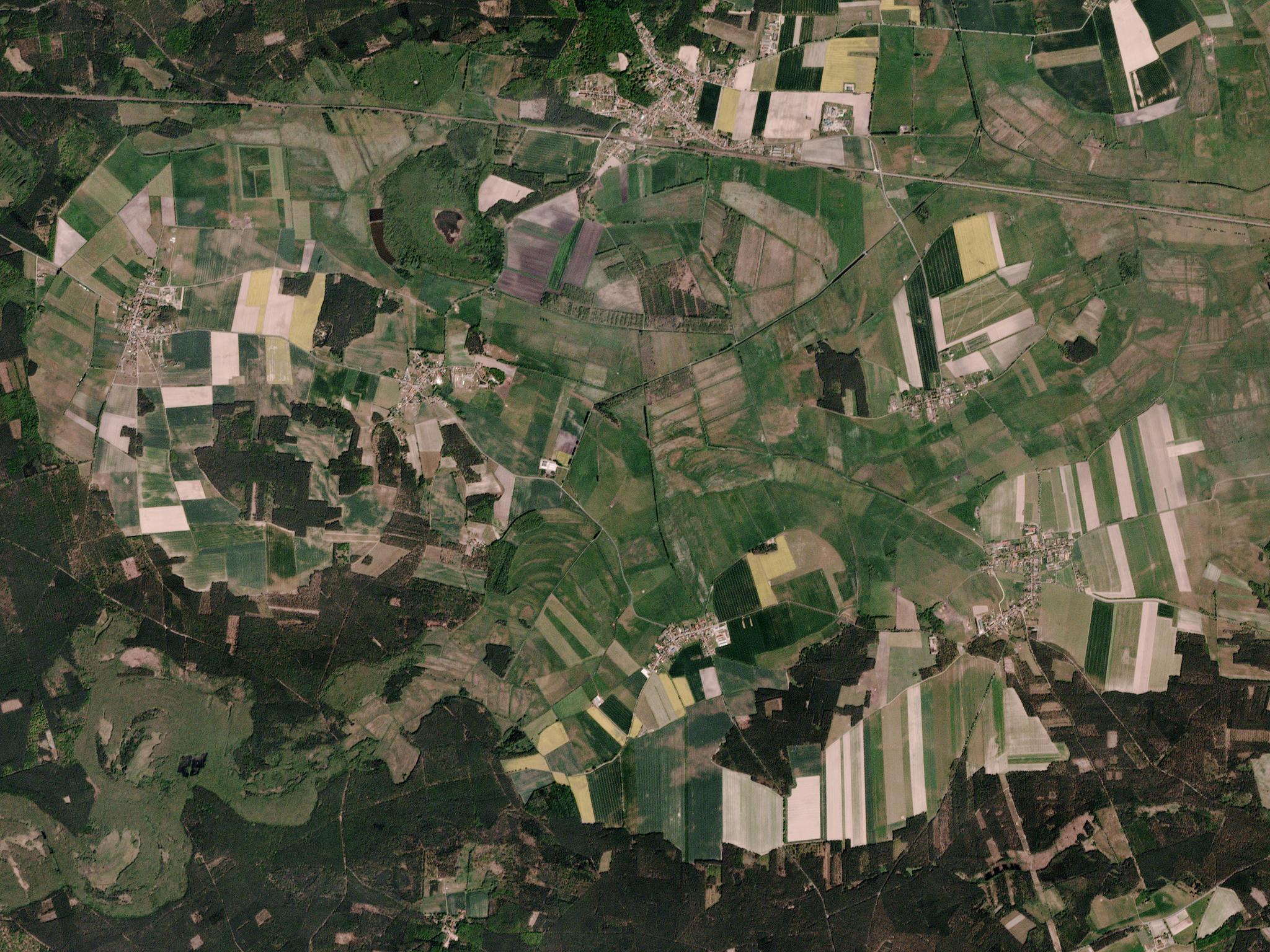Planet to Provide High-Resolution Imagery to Copernicus Programme as Part of Airbus-Led Consortium

PlanetScope image of the Brandenburg Forest © 2017, Planet Labs Inc. All Rights Reserved.
NewsPlanet, as part of an Airbus-led consortium, is excited to announce a commercial contract to service the European Commission and European Space Agency Copernicus Programme, the ambitious European Earth observation initiative. Planet will contribute to the consortium close to 1.7 million square kilometers of very high resolution satellite imagery of the continent in the coming year. The consortium is led by Airbus, which will also provide imagery in addition to data and service providers Deimos Imaging, IGN, and Space4Environment. The VHR2018 consortium will operate in parallel to Planet’s recently announced partnership with Airbus, and demonstrates Planet’s commitment to Europe’s Earth observation ecosystem. “This is an important partnership for Planet as it brings together major players in the private and public sectors to leverage our global, daily imagery to do something that has historically been very difficult to achieve,” said Will Marshall, CEO and cofounder of Planet. “Europe is very much ahead of the curve in terms of public-private cooperation and turning data into a public good, and we’re proud to be a part of this.” “This contract shows the confidence of ESA in Airbus and its partners to fulfill such a demanding satellite imagery programme,” said François Lombard, Head of the Intelligence Business at Airbus Defence and Space. “We are very proud to drive a consortium gathering such a unique combination of assets and together, we are confident we will deliver high quality full European coverage in record time.” ESA contracted the consortium to monitor 39 European (about 6 million square-kilometers). The result-based approach of the procurement has led the European Earth observation industry to federate and respond with a coordinated offer bringing together the strengths of each partner. Overall, a dynamic acquisition strategy and imaging redundancy within the consortium will guarantee achievement of the coverage objective. The high refresh rate of Planet’s Dove constellation will be particularly valuable to EC and ESA in northern Europe, which has been historically challenging to monitor due to high cloud conditions. Mountainous regions, including the Alps and Pyrenees, in addition to Scandinavia, will be almost exclusively monitored by Planet’s SkySat and PlanetScope constellations. Consistent, reliable remote sensing data from the consortium will enable the Copernicus Land Monitoring Service (under the coordination of the European Environment Agency) and various European institutions and governments to effectively execute and manage environmental and land use management policies. This includes a breadth of use cases, including monitoring biodiversity, wetland restoration, and more. The public and private entity cooperation of VHR2018 highlights how commercial, third-party data is complementary to – and in certain cases enhances – public programs like Copernicus, ultimately helping society achieve economic development and environmental goals. For more on the consortium, read the full press release here.

Ready to Get Started
Connect with a member of our Sales team. We'll help you find the right products and pricing for your needs.

